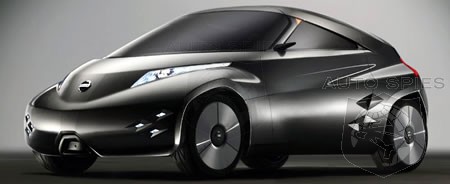Electric car pioneer ZAP (OTC BB:ZAAP.OB - News) is now offering plug-in hybrid conversion systems for the Toyota Prius and Ford Escape Hybrid through a collaboration agreement with Hybrids Plus.
Hybrid vehicles retrofitted with systems from Hybrids Plus of Boulder, Colorado can achieve a significantly greater fuel economy. In tests these systems increased hybrid fuel economy up to 120 miles per gallon in the city and up to 90 mpg on the highway. The cost for the conversion ranges from $24,000 to $36,000 depending on the vehicle and size of battery pack.
All gasoline electric hybrids currently produced by major automakers today are essentially gasoline-powered vehicles. They reduce emissions and improve fuel efficiency compared to conventional cars, however they are fueled exclusively by gasoline. The plug-in hybrid electric vehicle (PHEV) will allow the owner to charge their vehicle from a normal household wall outlet. By integrating a larger battery pack and a plug-in charging system, it becomes a new vehicle drawing energy from two fuel sources.
Hybrids Plus has sold PHEV systems to private individuals, fleets, power companies, and governmental entities. Deliveries can be provided in approximately four weeks from the initial order.
"This is a natural extension of our growth plans," said Hybrids Plus CEO Carl Lawrence. "ZAP has sold more city speed electric vehicles than any other company and has an established, growing dealer network that can provide sales and service for our vehicles."
"This collaboration allows more hybrid owners to have the most efficient vehicles on the road today," said ZAP CEO Steve Schneider. "ZAP dealers are preparing to offer a new level of service in the coming years involving mass-market hybrid and electric cars from Detroit Electric, so experience with plug-in hybrids can accelerate this process."
About ZAPZAP has been a leader in advanced transportation technologies since 1994, delivering over 100,000 vehicles to consumers in more than 75 countries. At the forefront of fuel-efficient transportation with new technologies including energy efficient gas systems, hydrogen, electric, fuel cell, ethanol, hybrid and other innovative power systems, ZAP has a joint venture called Detroit Electric to manufacture electric and hybrid vehicles with Youngman Automotive Group, one of China's leading manufacturers of buses and trucks. Detroit Electric is developing a freeway capable electric vehicle called the ZAP Alias in collaboration with Lotus Engineering. ZAP is also developing a new generation of vehicles using advanced nanotech batteries with Advanced Battery Technologies. The Company recently announced a strategic partnership with Dubai-based Al Yousuf Group to expand its international vehicle distribution. ZAP also makes an innovative, new portable energy technology that manages power for mobile electronics from cell phones to laptops. For product, dealer and investor information, visit http://www.zapworld.com.
About Hybrids PlusHybrids Plus, Inc., a privately held corporation in Boulder, CO, converts hybrid-electric vehicles into plug-in hybrid-electric vehicles (PHEV). The company is also a leader in vehicle to grid (V2G) technology, which allows battery energy stored in a PHEV to be fed into the electrical grid or a stand-alone house. It is deploying the first V2G fleet in the world in collaboration with a major electric power utility. Hybrids Plus is presently the second largest PHEV conversion company in North America, and it has the PHEV conversion technology that is the most seamlessly integrated into the original vehicle. It currently converts the Toyota Prius and the Ford Escape Hybrid, and may soon be offering a Toyota Highlander Hybrid conversion. For more information, visit http://hybrids-plus.com/.
This press release contains forward-looking statements. Investors are cautioned that such forward-looking statements involve risks and uncertainties, including, without limitation, continued acceptance of the Company's products, increased levels of competition for the Company, new products and technological changes, the Company's dependence upon third-party suppliers, intellectual property rights, and other risks detailed from time to time in the Company's periodic reports filed with the Securities and Exchange Commission.
Image Available: http://www2.marketwire.com/mw/frame_mw?attachid=710216
Contact: ZAP
Alex Campbell
707-525-8658
acampbell@zapworld.com

























